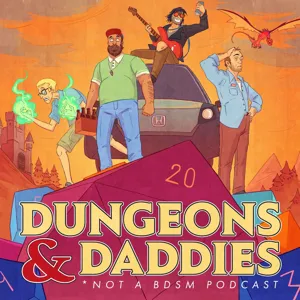Podcast Summary
Cats' Impact on Ecosystems: Contentious Issue: Cats, once wild animals, have become a contentious issue due to their impact on ecosystems. Some see them as companions, while others view them as invasive species causing damage. Restrictions and bans exist in some places, and ongoing discussions address managing their population in the US.
Cats, once domesticated around 10,000 years ago, have become a contentious issue due to their impact on ecosystems. Some view cats as cuddly companions, while others see them as invasive species causing damage. The debate has intensified with increasing reports of cat overpopulation and their negative effects on wildlife. For instance, in some places like Iceland and New Zealand, there are restrictions or bans on cats. In the US, there are ongoing discussions about managing the cat population. This tension stems from the historical context of cats transitioning from wild animals to house pets, which brought them closer to human settlements and attracted them to stored food and water. Despite the ongoing debate, it's clear that cats' impact on ecosystems is a pressing issue that requires further discussion and potential solutions.
Impact of Domestication on Cats and Dogs: Though cats were domesticated earlier than dogs, there are fewer cat breeds due to their independent nature. Cats' free-roaming behavior raises concerns for wildlife, leading to ongoing debates about stricter regulations.
Cats and dogs differ in their levels of domestication, with dogs being domesticated around 4000 years ago and cats around 10,000 years ago. This is reflected in the larger number of dog breeds compared to cat breeds. The speaker, who has always had dogs and is allergic to cats, appreciates the independence and wildness of cats that attracts many people to them. However, concerns have been raised about the impact of free-roaming cats on wildlife, particularly birds, with Edward Forbush being one of the first to sound the alarm in the late 1800s and early 1900s. Despite the risks, cats are still allowed to roam free in many areas, leading to ongoing debates about the need for stricter regulations to protect wildlife.
The Debate Over Domestic Cats' Impact on Wildlife: Estimates of bird deaths caused by domestic cats range widely, sparking controversy and strong reactions. Some advocate for population control to protect wildlife, while others view cats as beloved pets and part of the natural ecosystem.
The impact of domestic cats on wildlife has been a contentious issue for over a century, with estimates of bird deaths ranging from hundreds of thousands to millions per year. In the early 1900s, Forbes warned of the cat's threat to wildlife, estimating that 700,000 birds were killed annually in Massachusetts alone. More recent estimates have elicited strong reactions, particularly from cat advocates who view such claims as a threat to cats themselves. For instance, a study by Dr. Stanley Temple in Wisconsin in the 1990s estimated that 1.4 million free-ranging cats in the state were killing around 5.6 birds per year each, leading to estimates of up to 7.8 million birds killed annually. This estimate sparked death threats and challenges to the research. The debate continues today, with some advocating for controlling cat populations to protect wildlife, while others view cats as beloved pets and part of the natural ecosystem. The issue remains polarizing, with strong emotions on both sides.
Vuori's Offerings and Cat Advocacy Movement: Vuori provides discounts, free shipping, and returns. The Cat Advocacy Movement promotes outdoor cats' rights, reducing shelter euthanasia through practices like TNR and neighbor communication.
Vuori.com offers comfortable and versatile clothing with a 20% discount on the first purchase, free shipping on US orders over $75, and free returns. Meanwhile, the National Cat Advocacy Movement, led by organizations like Alley Cat Allies, has been instrumental in reducing the number of shelters euthanizing cats. The movement's leader, Becky Robinson, advocates for outdoor cats' right to live freely, encouraging people to make their neighborhoods welcoming for these cats through practices like trap-neuter-return and neighbor communication. Cats have lived around humans for thousands of years, and this relationship continues to evolve, with the focus shifting from keeping cats indoors to ensuring they can thrive outside.
Alley Cat Allies' stance on cats and birds: Alley Cat Allies argue that cats are unsocialized domestic animals, not wild animals, and dispute research suggesting cats pose a significant threat to birds, while emphasizing the importance of good science.
The Alley Cat Allies organization advocates for the welfare of feral cats and encourages community engagement to help protect and care for them. However, their stance on the impact of cats on bird populations is a contentious issue. The organization disputes research suggesting that cats pose a significant threat to birds, labeling it as false data and unscientific. This disagreement has led to heated debates and even death threats towards researchers, such as Stanley Temple, who have published estimates on the subject. The Alley Cat Allies argue that feral cats are not wild animals but unsocialized domestic cats, and that current animal cruelty laws protect them. They emphasize the importance of good science before taking any action against cats. Despite their focus on cats, the Alley Cat Allies website does not provide suggestions for protecting neighborhood birds from cats.
The controversy surrounding Stanley Temple's research on bird population decline and feral cats: Stanley Temple's research on bird population decline and feral cats caused controversy due to his ties with the American Bird Conservancy, leading to threats and backlash from cat advocates. The debate continues over the impact of cats on bird populations, with estimates suggesting they kill between 1.3 and 4 billion birds a year in the US.
The relationship between doctor Stanley Temple and the American Bird Conservancy, which is known for its strong anti-cat stance, raised concerns about the credibility of his research. Temple's findings were used to support a measure that aimed to designate feral cats as unprotected, leading to threats and backlash from cat advocates. The measure ultimately failed, but the debate over the causes of bird population decline continues. In a study published in 2013, researchers estimated that cats kill between 1.3 and 4 billion birds a year in the United States. While the exact number is uncertain, it highlights the significant impact humans and their pets have on wildlife populations. The complex issue of balancing human needs with wildlife conservation continues to be a challenging and often contentious issue.
Managing Feral Cat Populations: Different Perspectives: Animal welfare groups advocate for TNR programs while ecologists argue for euthanization or stricter population control due to challenges in neutering and releasing cats every year and the harsh conditions they face in urban areas.
The debate over managing feral cat populations continues to be a contentious issue, with different perspectives coming from animal welfare organizations, ecologists, and government agencies. While groups like Ally Cat Allies advocate for Trap-Neuter-Release (TNR) programs as a humane and effective solution to control feral cat populations, ecologists argue that these programs are not sufficient as cats reproduce quickly and it's challenging to neuter and release 75% of a colony every year. Some ecologists, like Pete Mara, even suggest that the status quo of allowing cats to live wild lives in urban areas is not humane due to the diseases, injuries, and harsh conditions they face. This perspective is shared by organizations like PETA, which advocates for euthanizing feral cats. The issue is complex, with valid concerns on both sides, and requires ongoing research and collaboration to find the most effective and humane solution for managing feral cat populations.
Exploring Perspectives on the Conflict Between Cat Lovers and Bird Protectors: Empathy and understanding different perspectives are crucial for resolving complex issues. Use vivid imagery and storytelling to illustrate competing truths. Therapy can help find a calmer, more balanced perspective. It's possible to hold multiple perspectives and appreciate complexity.
Our connections and perspectives shape the way we view complex issues, such as the conflict between cat lovers and bird protectors. The discussion highlighted the power of empathy and understanding different perspectives. The use of vivid imagery and storytelling helped illustrate the importance of making space for competing truths. Furthermore, the podcast also emphasized the value of therapy in dealing with personal stressors and finding a calmer, more balanced perspective. Cawden, a bird enthusiast and cat owner, provided an insightful perspective, showing that it's possible to hold multiple perspectives and appreciate the complexity of various issues. Overall, the conversation encouraged listeners to consider different viewpoints and seek understanding, ultimately leading to more productive and peaceful outcomes.
A Friendly Discussion About Birds: Colton expresses his fascination with birds, their unique abilities, and social nature, contrasting them to cats. He shares his past experiences raising chickens and current desire to hatch new ones.
The speaker, Colton, has developed a deep appreciation for birds and their unique characteristics, which he finds fascinating. He enjoys learning about birds from his friend, who is knowledgeable in the field of ornithology. During their conversations, Colton asks various bird-related trivia questions, and they discuss various bird species and their unique abilities. Colton expresses his admiration for birds, as they have not been fully domesticated like cats and dogs, and he finds their alien nature intriguing. He also shares his experience of raising chickens and the contrast between raising them and having cats. The speaker also mentions his past experience of owning chickens, which all unfortunately passed away, and his current desire to hatch new ones. The conversation highlights the intelligence and social nature of chickens, which Colton finds more engaging than the independent nature of cats. Overall, the conversation demonstrates Colton's passion for birds and his desire to learn more about them.
Balancing cats and birds: A complex issue: Exploring solutions like bells, leashes, and catios to help cats and birds coexist, while recognizing the importance of both human-animal bond and wildlife conservation.
Finding a balance between allowing cats to roam freely and protecting birds is a complex issue. Many cat owners, including children, recognize the problem but offer solutions such as bells on cat collars or keeping cats inside entirely. Some believe technology, like catios, can help cats and birds coexist. Ecologists suggest that in certain areas, where cats pose a significant threat to native wildlife, cats may need to be kept inside or humanely removed. The use of bells, leashes, and catios are becoming more common as solutions to this issue. Pete Marra, an academic in this field, is skeptical but open to the idea that technology can help cats and birds coexist. The conversation also touched upon the idea that cats have already contributed to the extinction of 63 species and the need to prevent the 64th. Overall, the conversation highlighted the need for a balanced approach to address the conflict between cats and birds, recognizing the importance of both human-animal bond and wildlife conservation.
Protecting wildlife is like preserving art: Individual actions impact wildlife populations, education inspires care, and collective efforts are crucial for conservation
Every species, including birds, has value and contributes to the natural world. Losing a species is like losing a piece of art, and we have a responsibility to protect them for future generations. The impact of individual actions, such as owning a cat, may seem insignificant, but when multiplied by millions, it can have a significant impact on wildlife populations. Changing behavior and making collective efforts to conserve species is important for the health of the Earth and the generations to come. The speaker emphasized the importance of education and inspiring people to care about wildlife and the environment, even from a young age. Cornell University is an example of a place where one can study ornithology and become a professional in the field. It's never too early to start caring about birds and other wildlife, and small actions can add up to make a big difference.





